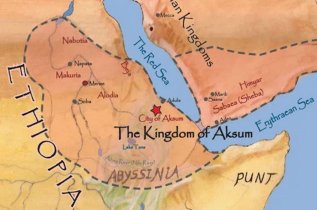
|
Ethiopia History |
Ethiopia History |
Ethiopia History | Ethiopia History |
Explore all about the African country of Ethiopia in a series of articles, pictures, videos and images.
More >
|

|
In 1913 Menelik died and was succeeded by his grandson, Lij Iyasu, however three years later Lij Iyasu was overthrown and replaced by Menelik's daughter Zawditu. After her death in 1930, her son ascended the throne as Emperor Haile Selassie I who ruled until the Italians invaded the country forcing him into exile in 1936 following the Italian capture of Addis Ababa. he then king of Italy, Victor Emmanuel III, made himself Emperor of Ethiopia (above) and formed Italian East Africa comprising Ethiopia, Italian Somaliland and Eritrea. During the Second World War, the allies routed the Italians in Africa in 1941 restoring Selassie to the throne and in 1962 he annexed Eritrea making it an Ethiopian province, sparking a thirty year war of independence which was finally won and confirmed by a referendum in 1993.
The Derg regime ended on 22 February 1987 shortly after a new constitution was approved with chairman Mengistu remaining in power as president until the Ethiopian People's Revolutionary Democratic captured Addis Ababa in 1991 forcing Mengistu to flee to Zimbabwe where he remains despite an Ethiopian court verdict which found him guilty of genocide in absentia. A new constitution was written giving Ethiopia a president and prime minister with elections being held in 1993. By this time the Soviet Union was no more and, with its residual influence waning (the withdrawal of its financial support leading to Mengistu's downfall), Ethiopia turned to the west for alliances and support. These ties became stronger after the 9/11 attack in New York with joint training between US and Ethiopian forces. There are however ongoing tensions in the country over Ethiopia's post 1991 ethno-federalist setlement for the governance of the country, with many Ethiopians seeing it as a guarantee of local autonomy, while others view it as an obstacle to effective central government. For the latest check out our Ethiopia news pages. |
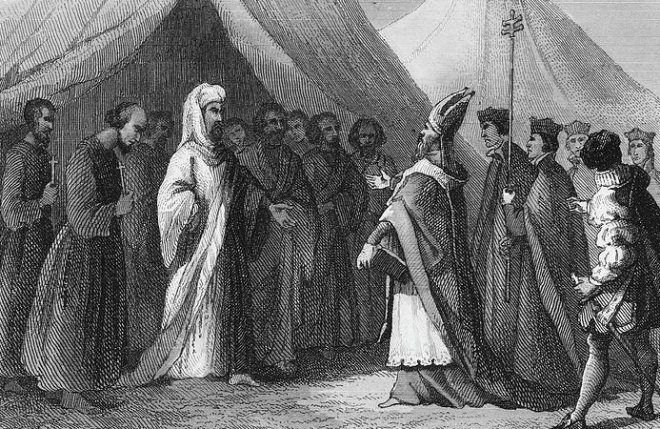
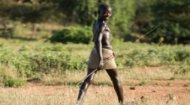
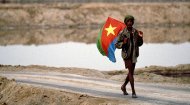
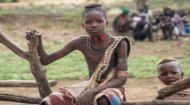
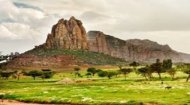
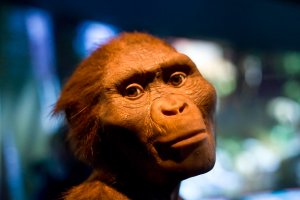

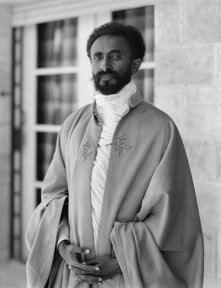 In 1974 Salessie (right) was overthrown in a military coup, dying in mysterious circumstances the following year ~ believed to have been strangled in his palace and his body hidden under a toilet. The monarchy was abolished and General Teferi Benti was installed as ruler. He was killed three years later and replaced by Colonel Mengistu Haile Mariam (bottom left), a Marxist dictator who ruled with the Derg Junta with Soviet Union backing under a reign known as 'Red Terror' during which 500,000 to 2,000,000 Ethiopians died, mostly during the 1983-1985 famine in the country.
In 1974 Salessie (right) was overthrown in a military coup, dying in mysterious circumstances the following year ~ believed to have been strangled in his palace and his body hidden under a toilet. The monarchy was abolished and General Teferi Benti was installed as ruler. He was killed three years later and replaced by Colonel Mengistu Haile Mariam (bottom left), a Marxist dictator who ruled with the Derg Junta with Soviet Union backing under a reign known as 'Red Terror' during which 500,000 to 2,000,000 Ethiopians died, mostly during the 1983-1985 famine in the country.


